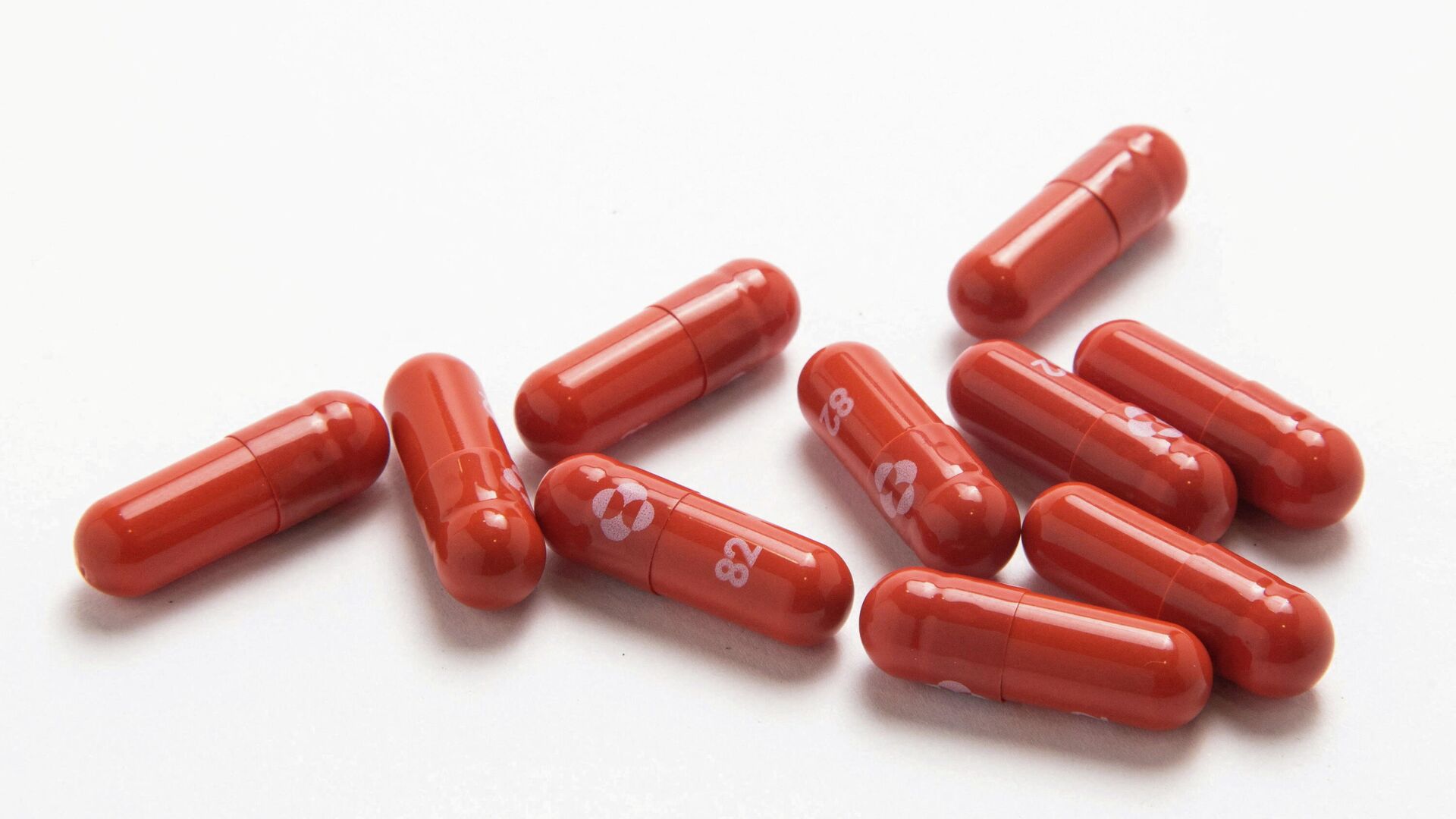Merck Reaches Deal With UN to Produce COVID-19 Antiviral Pill in Several Third World Nations

© REUTERS / Merck & Co
Subscribe
American pharmaceutical giant Merck has reached an agreement with the United Nations for generic drugmakers in the Third World to produce cheaper versions of its COVID-19 antiviral pill molnupiravir.
Merck announced on Tuesday that it would grant voluntary licenses for molnupiravir to 27 generic drug manufacturers and the Medicines Patent Pool, a UN-backed agency used to obtain licenses for cheaper drugs for lower and middle-income countries (LMIC).
By agreeing to the deal, Merck and its partners in producing the drug, Ridgeback Biotherapeutics and Emory University, will not receive royalties for molnupiravir sold under the deal.
The firm will also allocate “up to 3 million courses” of molnupiravir for the UN World Children’s Fund (UNICEF) for distribution in more than 100 LMIC by the middle of 2022, “following regulatory authorizations.”
Like other antivirals, molnupiravir is used to treat patients who have already developed COVID-19 in order to lessen the impact of the virus, rather than interdict its transmission from person to person, as vaccines typically do. The drug interferes with SARS-CoV-2’s ability to replicate in human cells, shortening the patient’s infection time and preventing the kind of dangerous immune response that can hospitalize or kill them. It was originally developed by Emory to treat influenza, but never used due to problems with mutagenicity, and only later did Ridgeback and Merck work to further develop the drug.
An official from MPP told Reuters that a five-day course of 40 molnupiravir pills is expected to cost about $20 in poorer nations, although they noted that is subject to change. Regardless, it’s far below what the US government agreed in June to pay for the first 1.7 million treatment courses: $700 per course.
Such an arrangement has long evaded the makers of COVID-19 vaccines, which pushed tirelessly to stop a patent waiver by the World Trade Organization that would allow their vaccines to be produced in poorer nations, leading institutions from the World Health Organization to the International Monetary Fund to condemn the inequality of vaccine distribution for prolonging the pandemic.
While some, such as Pfizer and AstraZeneca, have reached deals to allow final assembly of their vaccines in countries like India and South Africa, their partner institutions haven’t been given the recipes for the vaccine’s ingredients. In Merck’s deal with the MPP, however, partner firms will make the entire drug.
However, distribution of molnupiravir will have a number of hurdles, including that the WHO hasn’t approved the drug, blocking its availability in many poorer countries without independent regulatory bodies. Many nations that do have such bodies have so far declined to approve molnupiravir as well, citing a lack of confidence in its effectiveness at treating COVID-19.
Earlier this month, Indian Council of Medical Research (ICMR) director general Balram Bhargava said the drug “has major safety concerns,” leading the Indian Health Ministry to leave the drug off its national COVID-19 clinical protocols.
“The US has approved it only based on 1,433 patients with a 3% reduction in moderate disease when given in mild cases,” Bhargava explained. “However, we have to remember that this drug has major safety concerns. It can cause teratogenicity, mutagenicity, and it can also cause cartilage damage and can also be damaging to muscles.”
“More importantly, if this drug is given to a man or a woman, contraception has to be used for three months, as the child conceived during that period may have problems with teratogenic influences,” he added.
